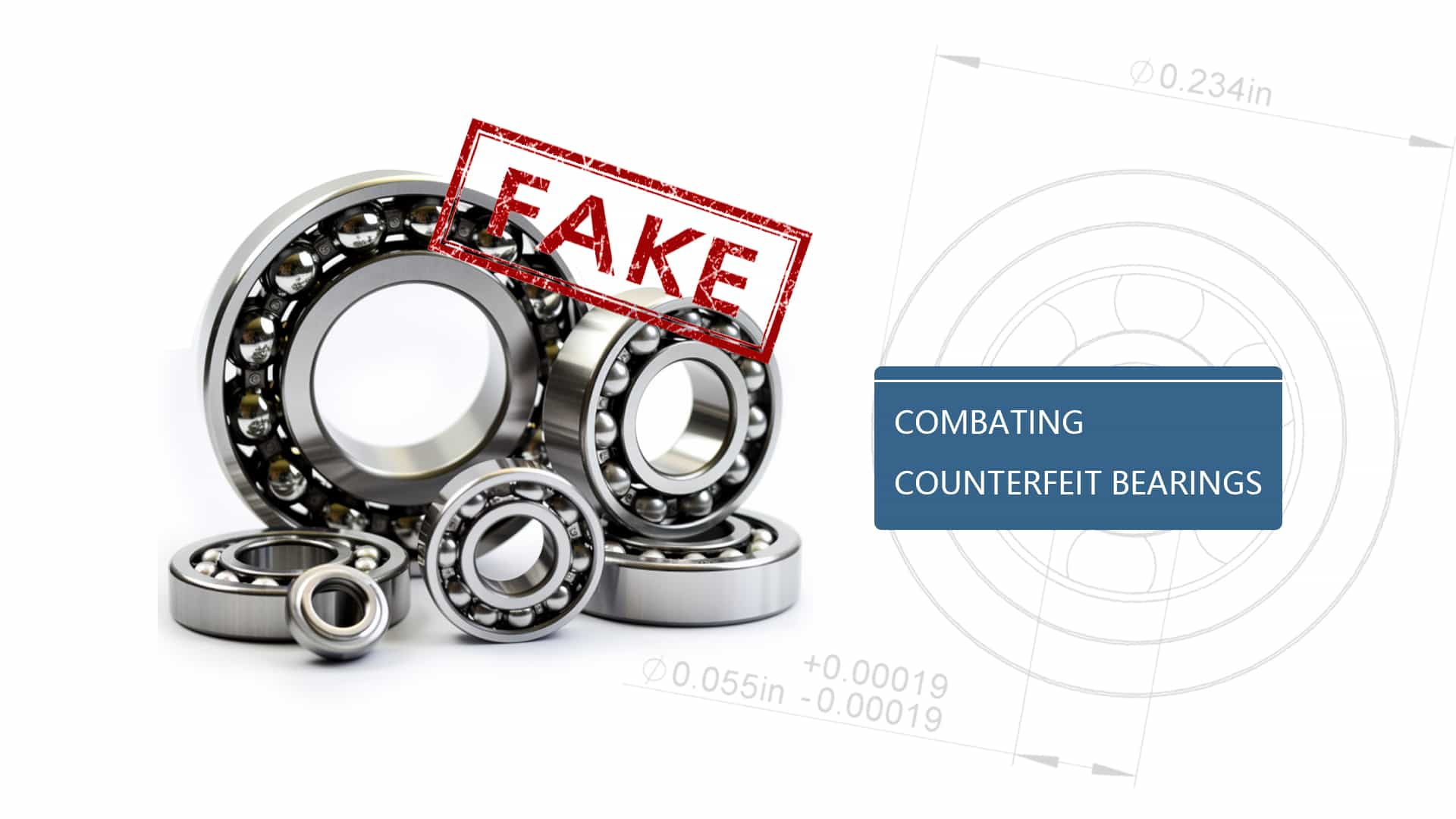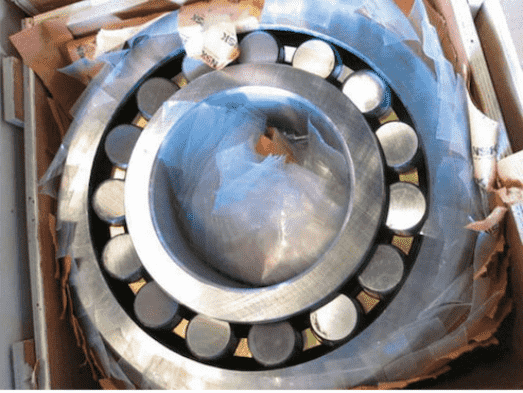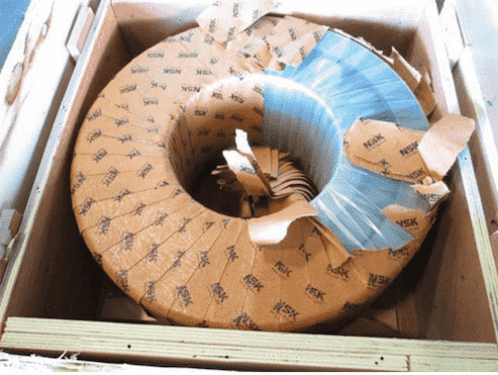The Impact of Counterfeit Bearings On the Industry and How to Avoid Them
The issue of counterfeit bearings is growing in the global market, affecting various industries that rely on these crucial parts. The increase in global trade and online marketplaces has made it easier for fake products that look like those from reputable brands to spread. This makes it hard for buyers to tell real bearings from fakes. Our blog offers tips on how to spot and avoid counterfeit bearings to protect the safety, reliability, and performance of your equipment.

Understanding Counterfeit Bearings
Counterfeit bearings are imitations that purport to meet standards they fall far short of. They often mimic the appearance of bearings made by reputable manufacturers but lack the quality, performance, and reliability of authentic parts. While genuine bearings are produced under strict industry standards, their counterfeit counterparts typically come from unregulated sources, which makes them unreliable and dangerous.
The Negative Impact of Counterfeit Bearings
Safety Hazards
- Bearings may seem minor within large machinery, but they can cause serious accidents. According to the World Bearing Association, 39% of counterfeit bearings pose risks to human safety.
- The costs associated with recovering from accidents or equipment failures caused by fake bearings far exceed any savings from buying them.
- These fake bearings often use lower quality materials than genuine ones, increasing the chances of failure and leading to dangerous situations.
Economic Losses
- The financial drain due to counterfeit bearings is two-fold: they necessitate frequent replacements and, in case of bearing failure, can cause machinery damage leading to costly downtime.
- Businesses are not only losing money on purchasing these bearings but also on the subsequent maintenance and potential halts in production.
- In addition, counterfeit bearings often cost less than genuine ones, leading to lost revenue and lower profits for legitimate manufacturers and suppliers.
Reputation Damage
When equipment fails due to counterfeit bearings, it's not just the machinery that takes a hit – the company's reputation suffers too. Such incidents can shake customer confidence and tarnish the brand's image, which takes years to build.
Legal Ramifications
The use of counterfeit bearings can attract legal action, with potential charges ranging from negligence to indirect involvement in the counterfeit trade. The legal costs, penalties, and the damage to one's reputation can be staggering.
How to Identify Counterfeit Bearings
It's important to identify counterfeit bearings to keep equipment safe and reliable. Here are some tips to help spot these fakes:
Initial Examination
- Weight and Appearance: Genuine bearings are manufactured to precise bearing tolerances and weights. A bearing that feels unusually heavy or light, or shows poor craftsmanship in logos and finishes, may be counterfeit.

Counterfeit Bearings - No Markings (Fig Source: bearing-news.com)
- Packaging Quality: Inspect the packaging for signs of poor quality or discrepancies from what is typically used by the manufacturer.

Counterfeit Bearings - Incorrect Packaging (Fig Source: bearing-news.com)
Performance Testing
Operational Testing: If possible, test the bearing while it's in use. Counterfeit bearings often have lower bearing load capacities and might fail stress tests because they're made from lower-quality materials.
Verification Methods
- Documentation Checks: Always check for proper documentation such as certificates of authenticity and traceability codes. The absence of these documents is a red flag.
- Microscopic Inspection: Use a microscope to check for manufacturing flaws in the bearing. Counterfeit bearings often have noticeable inconsistencies.
- Digital Verification: Scan any barcodes or QR codes on the bearing. Authentic bearings will have codes that link to verified information about the product's origin and manufacture date.
How to Avoid Counterfeit Bearings
To keep your machinery running safely and efficiently, it's crucial to use authentic bearings. Here are some effective ways to ensure you avoid counterfeit bearings:
Purchase from Authorized Distributors
To guarantee authenticity, source bearings from the manufacturer's authorized distributors. This is the first and most effective line of defense against counterfeits.
Verify Authenticity
Use the verification tools from manufacturers:
- Official Databases: Check serial numbers on manufacturer databases.
- QR Codes: Scan QR codes on the packaging which should link to detailed information about the bearing’s origin and specifications.
- Certificates of Authenticity: Always request and verify certificates of authenticity that come with genuine bearings.
Educate and Train Staff
Regularly train your procurement and engineering teams to spot signs of counterfeit bearings.
- Identify Red Flags: Train your staff to recognize signs of fake products, such as poor packaging, incorrect labels, and low-quality materials.
- Update on Latest Trends: Keep the team informed about the latest methods counterfeiters are using and how to counter them.
Report Counterfeits
Be proactive in reporting suspected counterfeit bearings to manufacturers and industry bodies. This not only helps in taking counterfeiters down but also protects others in the industry.
Get Your Bearings at LILY Bearing
Remember! Avoid the risks of counterfeit bearings. At LILY Bearing, we pride ourselves on delivering only the best. Our products are rigorously tested for quality and performance, ensuring you get the reliability you expect from a top-tier bearing supplier. Choose LILY Bearing for a comprehensive selection of industrial bearings that won't let you down.
Keep Learning








